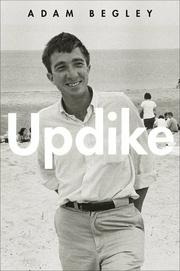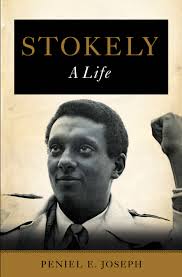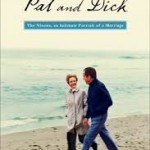2014 Election
The following are the election statements and biographies submitted by the candidates.
RUNNING FOR PRESIDENT
BRIAN JAY JONES
Brian Jay Jones has been a BIO Board Member since 2009, served for two years as BIO’s secretary, and presently serves as its elected Vice President. “Five successful years after establishing BIO, we’ve reached a critical juncture. More than ever, it’s vital that we increase our numbers, actively promote the organization (including our members, our conference, and our awards), and strive to meet the expectations our members may have of a professional association. We’re an organization with a membership based not just on profession, but passion; therefore, our ranks can and should include not just writers, filmmakers and graphic novelists, but also readers, students, and fans of biography. I want to work with our board—including our advisory board—on empowering our standing committees to work more aggressively and independently on recruiting new members, managing our various scholarships and awards, organizing our conference, increasing our visibility across media, and soliciting the involvement and input of members. Ultimately, it’s our members, as busy as they all are, that make us such a unique organization—and I’d like to take better advantage of the contacts, expertise, and enthusiasm of our members to help make BIO a larger, more useful, and influential organization.”
RUNNING FOR VICE PRESIDENT
CATHY CURTIS
I joined BIO in 2011, as a former Los Angeles Times staff writer immersed in research for my first book. Now I’m a board member and chair of the Program Committee, which selects topics and speakers for the conference. My biography of Abstract Expressionist painter Grace Hartigan will be published by Oxford University Press in 2015. At the five-year mark, BIO is at a crossroads. James McGrath Morris, our farsighted and much loved founder, is stepping down as president. This means that we must all step up. We need to:
- Involve every board member in the intensive behind-the-scenes work that makes possible our awards, our conferences, our financial health, and our plans for the future.
- Grow our membership.
- Institute internal transparency and coordination among committees, with the help of more sophisticated technology.
- Convince more BIO members to feel responsible for contributing their contacts, knowledge, and experience to our website and our newsletter, The Biographer’s Craft.
The positive side of all this work—which I have experienced as a committee chair—is the opportunity to work with fellow biographers, a group of highly intelligent, creative, opinionated people who approach their volunteer tasks with a welcome sense of humor and a keen awareness of our mission.
RUNNING FOR BOARD
CHIP BISHOP
Chip Bishop is an accomplished writer and speaker whose new book, Quentin & Flora – A Roosevelt and a Vanderbilt in Love during the Great War – is winning wide pre-release acclaim. His debut book, The Lion and the Journalist – The Unlikely Friendship of Theodore Roosevelt and Joseph Bucklin Bishop, hit #12 on the New York Times E-Book Best Seller List in March 2014. It’s been hailed by historians, reviewers, and readers alike. Chip grew up in Woonsocket, R.I. and was graduated from Boston University. His lifetime of achievements includes time as a campaign and administration aide to President Jimmy Carter, Capitol Hill lobbyist, business entrepreneur, local elected official, and disc-jockey during the 1960s British Invasion. Chip is a member of the board of directors of the Biographers International Organization, a member of the Theodore Roosevelt Association and the executive committee of its New England chapter. He serves his community as an elected member of the board of trustees of the Mashpee Massachusetts Public Library. He loves doo-wop music, old German stamps and the 2013 World Series Champion Boston Red Sox. He is the great-grandnephew of Joseph Bucklin Bishop, Theodore Roosevelt’s authorized biographer, who was profiled in his first book
KATE BUFORD
My best-selling Burt Lancaster: An American Life (Knopf/Da Capo/UK: Aurum) was named one of the best books of 2000 by the New York Times, the Los Angeles Times, and others. Native American Son: The Life and Sporting Legend of Jim Thorpe (Knopf 2010; U. of Nebraska Press paperback 2012) was an Editors’ Choice of The New York Times. I have written for The New York Times, The Daily Beast, Film Comment and other publications, have been a featured speaker at many events, and was a commentator from 1995-2003 on NPR’s Morning Edition and APM’s Marketplace. A member of BIO and PEN, I also serve on the board of Union Settlement Association in East Harlem, NYC. I have been involved with BIO since its formative meeting in 2009 and have served on panels at each annual conference since then. With the help of fellow BIO member, Abby Santamaria, I created the annual Biblio Award in 2012, now given at each conference to a worthy archivist or research librarian. I currently serve on the Program Committee. BIO is poised to move beyond the start-up phase into consolidating itself as a mature professional resource for biographers around the world. I would be honored to contribute to the hard work yet to be done to expand member outreach and to raise BIO’s public profile.
BARBARA BURKHARDT
Involved in BIO since its founding meeting in 2009, I have served as board secretary for the past two years, site co-chair for the 2011 Washington conference, and as a moderator and panelist at the LA and NYC conferences. We are heading into a period of refining how we administer our programs and services, institutionalizing our record-keeping, and putting additional structures in place to help the organization grow and mature. I would like to help the board document these efforts, developing BIO archives beginning with what I have collected electronically over the past few years as secretary and site Co-Chair for the 2011 conference. A second interest is developing an organized effort to increase membership by reaching out to biographers who are not yet a part of our fold. Professionally, I have been Associate Professor of American Literature with the University of Illinois Springfield and this year will take emeritus status. After moving to Washington, D.C. in 2003, I taught on-line extensively for Illinois. My first book, William Maxwell: A Literary Life, about the New Yorker editor and novelist, was published by the University of Illinois Press in 2005 (Paperback 2008) and in 2012 I edited Conversations with William Maxwell, which appeared as part of the Literary Conversations series of the University Press of Mississippi. I am currently writing a biography of Garrison Keillor under contract with St. Martin’s Press.
DEIRDRE DAVID
My first biography, Fanny Kemble: A Performed Life (U.Penn Press 2007), stemmed from a career writing about Victorian literature; I followed this with Olivia Manning: A Woman at War (Oxford U.Press 2013) and am now working on Pamela Hansford Johnson: A Writer’s Life (contracted to Oxford). As department chair at two universities (Maryland and Temple), I have gained substantial administrative experience. Working with colleagues on the program committee for the BIO 2014 Conference showed me how much we share as biographers, and also how challenges vary for different subjects; i.e., politicians, painters, playwrights, scientists, actors, sports figures, novelists all demand their own modes of research and writing. If elected to the Board, I would welcome assignments focusing on inter-disciplinary biography and on collaboration between biographers (such as working again on the program committee). I am also interested in volunteering to work on the committee for developing new members. I would also like to explore the establishment of a BIOBLOG, an online forum for questions, discussion, announcements, that would supplement our excellent newsletter and the interesting blogs of individual members, and possibly attract potential membership. In sum, I am eager to contribute to the development of BIO’s exciting future.
GAYLE FELDMAN
I’ve been associated with BIO from its first meeting at CUNY, and seen it grow to its present status as a grassroots organization that really matters to members and the field. Along with James McGrath Morris and a few others, I bring an institutional memory of how far we have come and sense of where we might go. My involvement has encompassed speaking on/organizing/moderating panels, some publicity outreach, and being the driving force behind the award in memory of the late Hazel Rowley, an early member, for the best proposal for a first biography, which we are awarding for the first time this year. I’d like to remain on the board to see the Rowley award firmly established. I’d also like to explore developing closer links with the London Biographers’ Club, whose president is an old friend and my former editor. As to background, I was a book editor in London before moving to New York, where I was a senior editor at Publishers Weekly for many years. I am writing my third book but first biography, a life of Random House co-founder Bennett Cerf, to be published by Random House. I am also New York correspondent for The Bookseller.
BEVERLY GRAY
I’ve been a professor of English at USC, the longtime story editor for B-movie legend Roger Corman, a freelance journalist, and a screenwriting instructor for UCLA Extension’s celebrated Writers’ Program. My first book, Roger Corman: An Unauthorized Biography of the Godfather of Indie Filmmaking, debuted on the Los Angeles Times bestseller list. The updated paperback and ebook editions have been tastefully retitled Roger Corman: Blood-Sucking Vampires, Flesh-Eating Cockroaches, and Driller Killers. Also the author of Ron Howard: From Mayberry to the Moon . . . and Beyond, I’m currently exploring new biographical projects relating to major figures in Hollywood. As the hard-working local site chair of BIO’s 2012 Los Angeles conference, I was officially named a “goddess.” I’ve served for three years on BIO’s program committee, and will moderate my third BIO panel (“Getting the Family on Board”) in Boston this May. Given my movie interests, I’d like to see more attention paid to biopics and other non-traditional forms of biography. This year’s program committee passionately debated whether or not to endorse a panel on the biographical novel. Since this topic clearly touched a collective nerve, I propose a public discussion on the essential parameters of what we call biography.
HANS RENDERS
Hans Renders, a board member of BIO, lives in Amsterdam and holds a chair in History and Theory of Biography. He is the director of the Biography Institute, Groningen University. He is the editor of Le Temps des Médias; of Quaerendo. A Quarterly Journal from the Low Countries; of ZL. Literary-historical magazine. He is a book critic for the newspaper Het Parool and for the weekly Vrij Nederland; and is also a Member of the Scientific Advisory Board of the Ludwig Boltzmann Institute for the History and Theory of Biography (Vienna). Biographers write better biographies when they’re aware of the theoretical implications of their work. In my experience there’s no necessary gap between academic justified biography and biography which is interesting for the general public. We all want a biography to be a good read. But poor writing is everywhere, in and outside the academic world. I hope to bring in the European perspective to keep bio a real international organization. I’m currenty working on the biography of Theo van Doesburg (http://en.wikipedia.org/wiki/Theo_van_Doesburg), the painter, poet and art theorist who founded together with Piet Mondrian the Style Movement.
WILLIAM SOUDER
I am running for re-election to the Board seat I currently hold. If re-elected, I want to continue to work mainly on our annual conference. Specifically, I’d like to see more outside voices—editors, agents, publicists, and reviewers—added to our panels. I think this would broaden the appeal of the meeting and allow us to focus the panels in which we share our own expertise more tightly. I think the substance of the conference should be enlightened shop-talk that appeals to working biographers and novices alike. About me: I am the author of three books, including two biographies. Under a Wild Sky: John James Audubon and the Making of The Birds of America was a finalist for the Pulitzer Prize in 2005 and will be re-issued this summer. On a Farther Shore: The Life and Legacy of Rachel Carson was published in 2012 and was a New York Times Notable Book and one of Kirkus Reviews’ Top 25 Nonfiction Books of the year. I am currently at work on a biography of John Steinbeck. I live in Grant, Minnesota, an often inhospitable place conducive to inside pursuits such as writing.
WILL SWIFT
Will Swift is the author of The Roosevelts and the Royals (Wiley, 2004), the Kennedys Amidst the Gathering Storm (Harper Collins, 2008) and Pat and Dick: An Intimate Portrait of a Marriage (Threshold, 2014) which is a New York Times Editor’s Choice. He moderated the Creating Beautifully Written Biographies panel in 2012 and the Brilliant Beginnings and Engrossing Endings panel in 2013. He has founded and run the Distinguished Author program of the Columbia County Historical Society in New York and has co-founded The Gotham Biographers group in Manhattan. He is also a clinical psychologist with forty years experience. The therapist in him loves sneaking into his biographer’s role and restoring unfairly tarnished historical reputations. A founding board member of BIO, he is committed to bringing new biographers into the organization, creating fresh and exciting panels for the conventions, and helping other authors improve their manuscripts.





